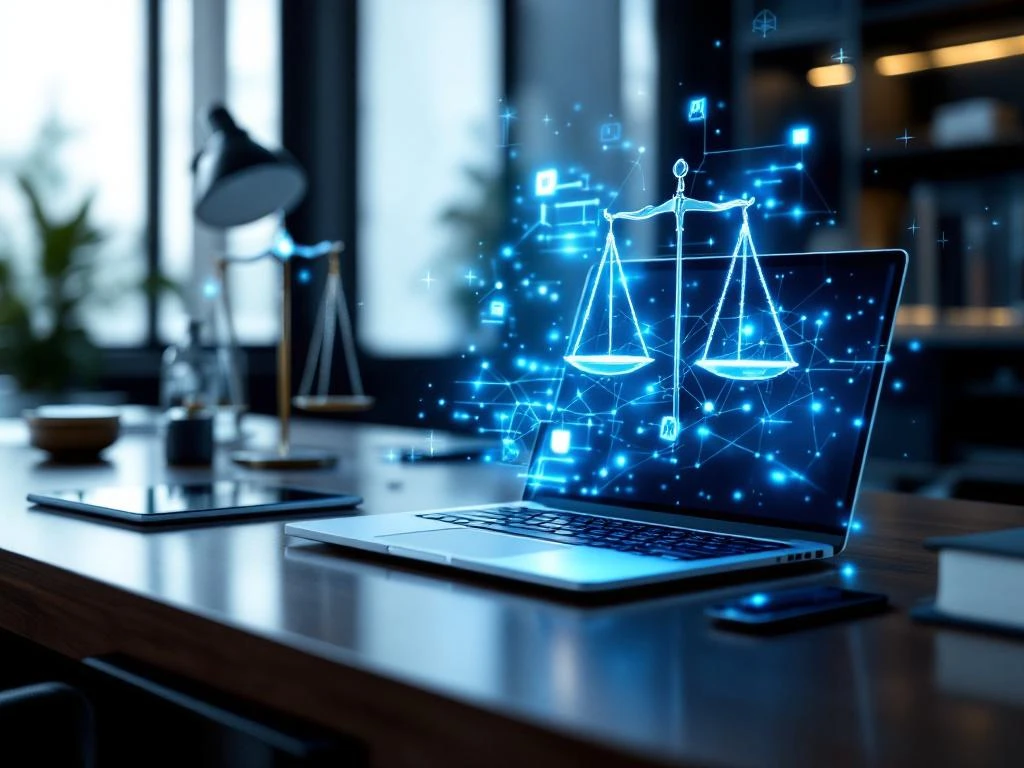

-
UK: +44 203 8876 770
US: 315 508 6500 - cybersecurity@thisisiceberg.com
-
8 Devonshire Square, London, EC2M 4YJ

Preparing your legal hiring strategy for the age of AI requires updating your recruitment approach to attract professionals who can work effectively with artificial intelligence technologies. This means prioritising candidates with AI tool experience, data analysis skills, and adaptability to new technologies, whilst restructuring your interview process to assess AI readiness and technical proficiency in cybersecurity and eDiscovery environments.
The legal industry is experiencing a fundamental shift as AI technologies become integral to daily operations. Traditional hiring approaches that focus solely on legal knowledge and experience no longer capture the full picture of what makes a successful legal professional today.
AI has transformed how legal work gets done, particularly in cybersecurity legal hiring and eDiscovery roles. Legal professionals now use AI-powered tools for:
This technological evolution means your hiring strategy must evolve too. Modern legal professionals expect to work with cutting-edge technology. If your recruitment process doesn’t reflect this reality, you’ll struggle to attract top talent who want to advance their careers using the latest tools and methodologies.
The shift isn’t just about technical skills. It’s about finding candidates who can think strategically about how AI enhances legal work rather than replacing human judgement. You need professionals who can leverage technology whilst maintaining the critical thinking and ethical standards that define excellent legal practice.
AI in legal recruitment today means recognising that artificial intelligence has become a standard tool in legal practice, particularly in cybersecurity and eDiscovery work. Legal professionals now use AI for predictive analytics, automated document classification, and risk assessment.
In cybersecurity legal roles, AI helps professionals analyse threat patterns, assess compliance risks, and automate routine security audits. eDiscovery recruitment now requires candidates who understand how AI accelerates document review processes and improves accuracy in identifying relevant materials.
This technological integration changes what you should look for in candidates. You need legal professionals who can interpret AI-generated insights, understand the limitations of automated systems, and make informed decisions based on AI recommendations.
The most successful legal professionals today combine traditional legal expertise with technological fluency. They understand how AI tools work, when to use them, and how to validate their outputs. This hybrid skill set has become the new standard for competitive legal talent.
Identifying AI-ready legal talent requires looking beyond traditional legal experience to assess candidates’ comfort with technology, adaptability to new tools, and understanding of AI applications in legal work.
Key indicators of AI-ready candidates include:
AI-powered hiring processes can help you screen for these qualities, but human assessment remains crucial for evaluating adaptability and learning potential.
Consider candidates’ educational background and professional development activities. Those who pursue continuing education in legal technology, attend tech-focused legal conferences, or participate in digital transformation initiatives show the forward-thinking mindset you need.
Hi! I see you're interested in preparing your legal hiring strategy for the age of AI. Many hiring managers are discovering they need to completely rethink their approach to attract AI-ready legal talent. Which best describes your current situation?
In the age of AI, prioritise candidates with strong analytical thinking, data interpretation skills, and the ability to work collaboratively with automated systems whilst maintaining critical judgement about AI-generated outputs.
Legal talent acquisition should focus on professionals who can bridge the gap between technology and legal practice. Data analysis skills have become fundamental, as legal professionals must interpret complex datasets and AI-generated reports to make informed decisions.
| Technical Skills | Soft Skills | AI-Specific Abilities |
|---|---|---|
| Data analysis and interpretation | Critical thinking and judgement | Understanding AI limitations |
| Legal technology proficiency | Communication and explanation | Validating AI outputs |
| Process automation understanding | Adaptability and learning agility | Ethical AI usage |
Technical skills matter, but soft skills remain equally important. Look for candidates with strong communication abilities who can explain AI-driven insights to clients and colleagues who may be less technologically savvy.
Adaptability stands out as perhaps the most important skill. AI technology evolves rapidly, so you need professionals who can learn new tools quickly and adjust their workflows as technology advances.
Adapt your interview process by incorporating scenario-based questions about AI applications, practical assessments of candidates’ ability to work with data, and discussions about how they would integrate AI tools into their legal practice.
Essential interview adaptations include:
Present candidates with situations where they must decide whether to use AI tools, how to validate AI outputs, or how to explain AI-driven recommendations to clients. Include practical assessments that test candidates’ comfort with data analysis and technology.
Update your evaluation criteria to include future of legal hiring considerations. Assess candidates’ potential for growth, their attitude towards technological change, and their ability to help your organisation adapt to evolving legal technology landscapes.
Ask AI-savvy legal candidates about their experience with legal technology tools, how they would approach validating AI-generated outputs, and their understanding of ethical considerations when using AI in legal practice.
Essential interview questions include:
For cybersecurity legal hiring, ask about their approach to staying current with evolving threats and technologies. For eDiscovery roles, explore their understanding of how AI improves document review processes whilst maintaining accuracy and compliance.
Building a future-ready legal team requires combining traditional legal expertise with technological fluency, creating a culture that embraces innovation whilst maintaining the highest professional standards.
Your legal staffing strategy should balance immediate needs with long-term technological evolution. Hire professionals who can contribute today whilst growing with your organisation as AI capabilities expand.
Focus on creating diverse teams that include both technology-forward professionals and those with deep traditional legal expertise. This combination ensures you can leverage AI effectively whilst maintaining the judgement and ethical standards that define excellent legal practice.
Consider the ongoing development of your team. AI in recruitment isn’t just about hiring the right people initially, but also about supporting their continued growth as technology evolves.
We understand the unique challenges of building AI-ready legal teams in cybersecurity and eDiscovery. Our experience connecting organisations with elite professionals who combine legal expertise with technological fluency can help you navigate this evolving landscape and build the future-ready team your organisation needs.
If you are interested in learning more, reach out to our team of experts today.













